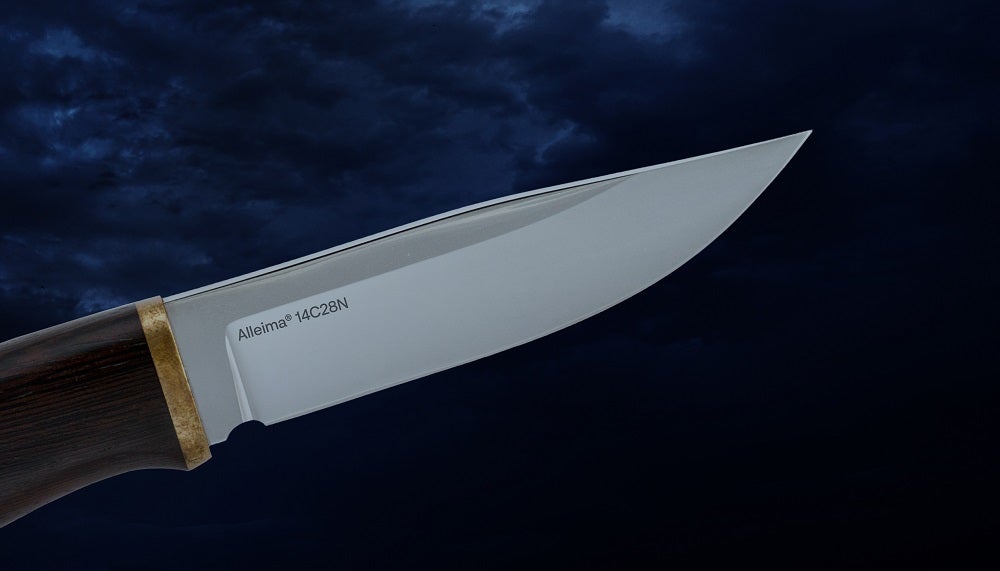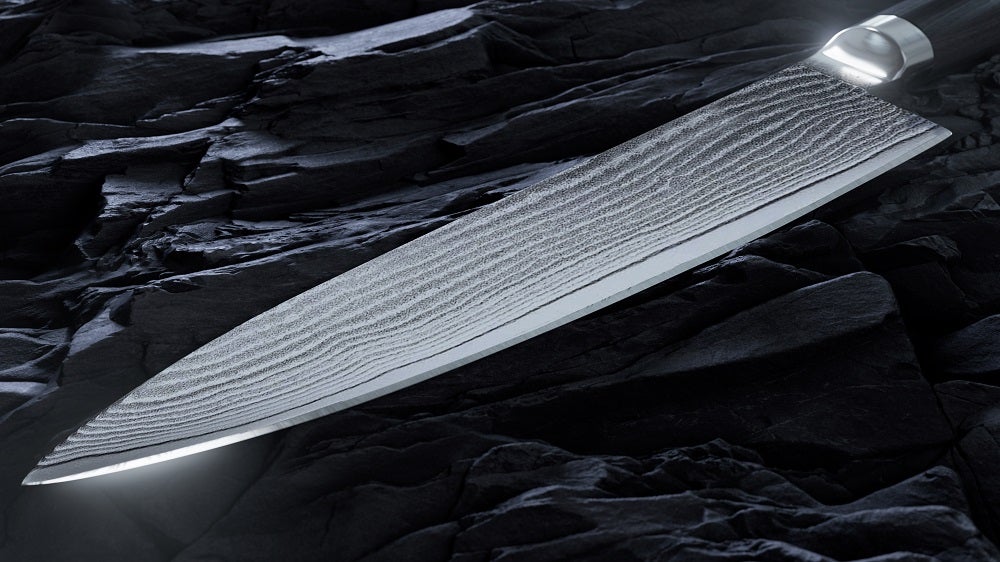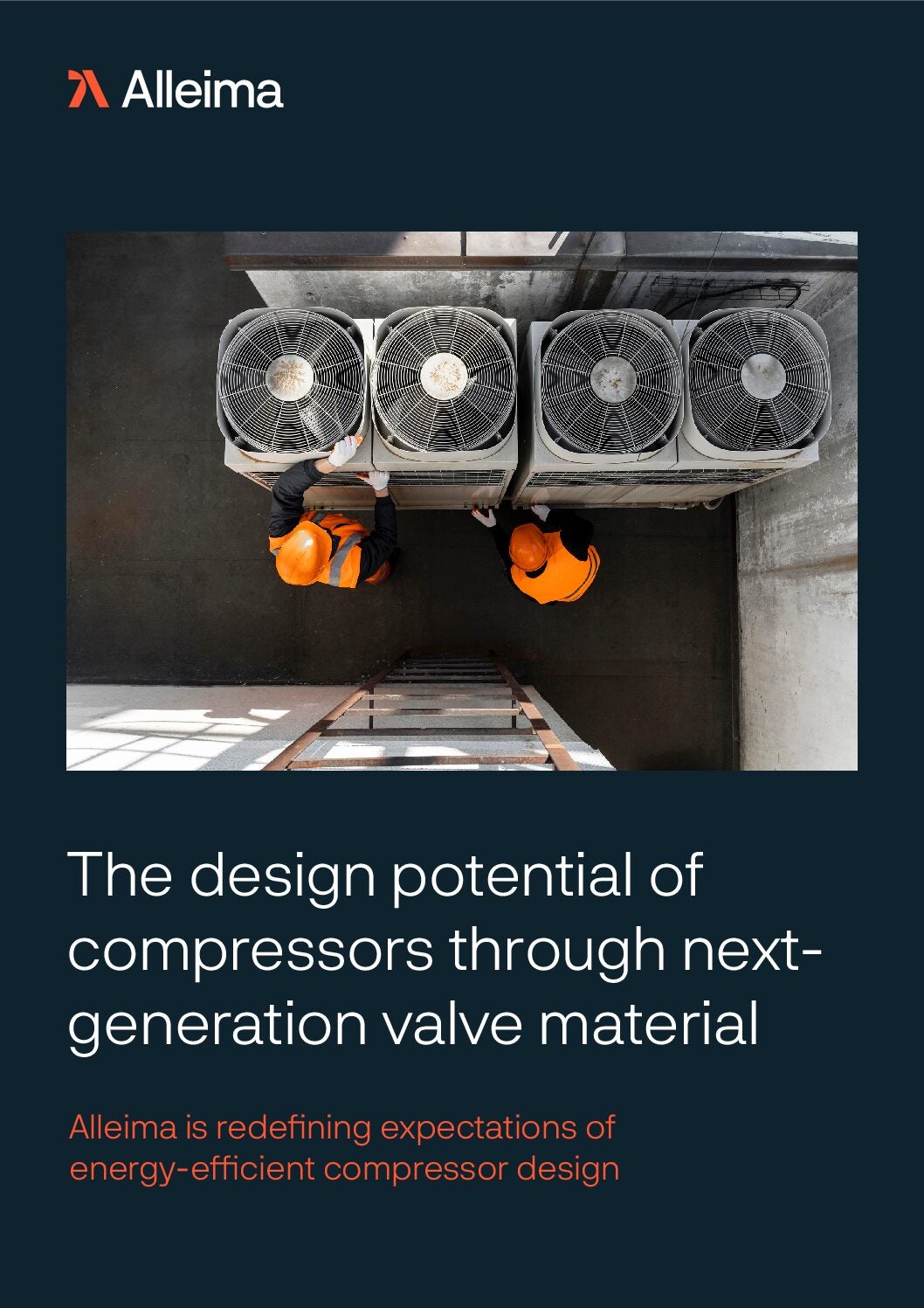
Knife steel has come a long way in the last few decades, and today’s metallurgy in the field is marked by advances in material technology, manufacturing techniques, and precision customisation. At the heart of these developments is the work of companies like Alleima, a pioneering force in the evolution of knife steel.
The legacy of knife steel metallurgy
In Sweden, iron production can be traced back millennia, with Högbo Bruk as one important site for iron production dating back to the 17th century, the area now home to Alleima. As Jonas Nilsson, technical business developer at Alleima, explains, “In 1862, Högbo Stål & Jernwerks AB was founded, which became the foundation for Alleima. In the early years, we produced steel for knife applications like bayonet steel for export and expanded into the consumer segment with the development of razor blade steel.”
Since the 19th century, Alleima’s innovation has been integral to advancements in knife steel. One major breakthrough was the introduction of the Bessemer process, which allowed for a more efficient steel production. “We were basically the first in the world succeeding with that technique,” Nilsson highlights. By the 1970s, the company had developed a full portfolio of stainless steel grades, specifically for edge applications, which became the standard for knives across multiple industries.
Key innovations: microstructure and performance
The success of any blade lies in the precise balance of its microstructure and metallurgical properties. As Nilsson describes, razor blade and surgical microtome producers have high expectations, requiring “a very homogeneous and clean microstructure with small non-metallic inclusions, enabling extremely keen edges, high hardness, and good toughness.” Advances in this area have not only improved the sharpness of blades but have also enhanced their corrosion resistance.
In 2009, Alleima’s launch of the 14C28N steel grade marked a significant leap in the handheld knife segment. “The demand was to match the hardness and stability of razor blade steel while improving corrosion resistance,” Nilsson explains. More recently, in 2017, the introduction of 10C28Mo2, with an ultra-fine carbide distribution, brought further improvements in toughness, edge durability and corrosion resistance. Both grades being the result of exciting development work in close collaboration with customers.

A portfolio built for performance
Today, Alleima’s knife steel portfolio is renowned for its ability to meet diverse application requirements, from everyday carry knives to military-grade tools and professional chef’s knives. “When choosing the steel for a knife, it’s important to bear in mind the application for which the knife will be used,” Nilsson advises, emphasising that different challenges require specific grades and treatments.
With more than ten specialised grades in its portfolio, such as the widely used 12C27, 14C28N, and 10C28Mo2, the company offers tailored solutions designed to optimise edge performance, toughness, and corrosion resistance. “Our all-in-house production and strong R&D allow us to tightly control the chemical composition and process parameters, which ensures a stable, high-quality product,” Nilsson says.
Meeting the demands for sustainability
Sustainability is an increasing focus for the steel industry, and Alleima has positioned itself as a leader in this area. According to Nilsson: “In July 2024, we received an Ecovadis Gold Medal, putting us in the top 5% of companies globally for sustainability.” This achievement is no small feat. Approximately 83% of the raw material used in Alleima’s knife steel is recycled material, and the company runs the main part of its furnaces used for knife steel production on fossil-free electricity. “We also work with a scrap buy-back programme to increase the level of recycled steel,” Nilsson notes.
The company’s commitment to reducing the CO2 footprint extends to the products it creates. What sets Alleima apart from its competitors is its attention to the full lifecycle of a blade. By focusing on developing alloys that improve edge-holding capability, regrindability, and corrosion resistance, Alleima is ensuring that its blades have a long lifespan. Moreover, at the end of their life cycle, these knives can be remelted into new steel products with high quality without adding to the industry’s carbon footprint.
Alleima’s Damascus innovation: Damax™
One of the most exciting innovations from Alleima in recent years is the launch of Damax, a layered stainless Damascus steel produced on an industrial scale. Damax offers the aesthetic qualities of traditional Damascus steel combined with Alleima’s trademark performance standards, merging layered steel with modern, cost-efficient production methods.
“The key thing with Damax is that it’s a perfect merge of tailor-made, handcrafted products and industrialised processes,” Nilsson explains. This combination allows the material to reach a hardness of around 60 Rockwell, making it ideal for high-performance knives.”
What’s next for knife steel?
Looking ahead, Nilsson foresees an industry driven by the demands for performance and sustainability. The growing interest in outdoor activities, spurred by the pandemic, has created a surge in demand for high-end, durable blades. “We’re seeing an increase in the outdoor segment and more interest in kitchen knives with higher hardness and acute edge angles, like Japanese-style knives,” Nilsson says. Additionally, small, independent knife producers have gained momentum through social media, further diversifying the market.
While Nilsson admits that “revolutionary” changes may not be on the horizon in the next decade, he does anticipate continued refinement of existing steel properties. Knife makers are pushing for even higher hardness and wear resistance, balanced with toughness and corrosion resistance. The focus will remain on producing blades that meet the specific needs of their users, from chefs to outdoor adventurers.
As Alleima continues to innovate and respond to the evolving demands of the knife industry, it’s clear that the company’s role in shaping the future of knife steel is far from over. Whether through improving sustainability or developing cutting-edge materials like Damax, Alleima is setting the standard for what’s possible in blade technology.



